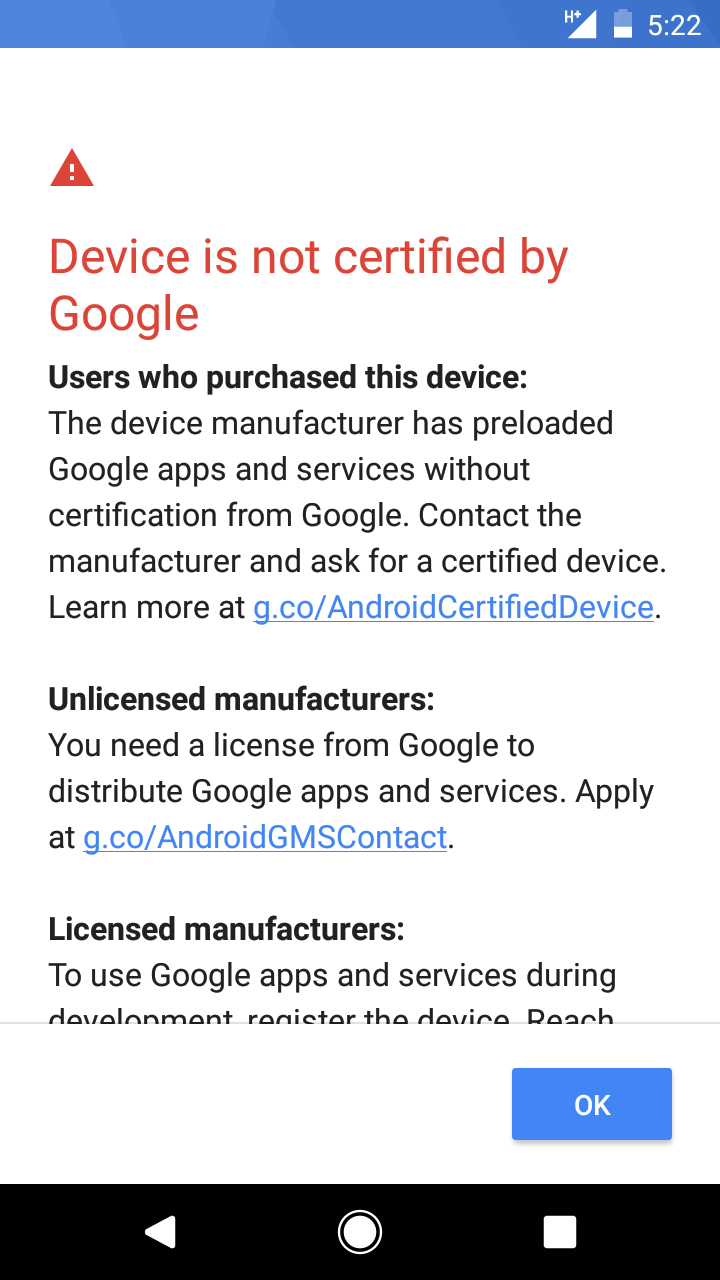Google’s Official Android apps such as Play Store, Maps will not run on your device if you are using uncertified ROMs or if your device is not certified you won’t be able to use any of the Google’s Services. The most common examples of these devices would be Amazon’s Fire OS tablets and also most all Chinese phones sold in China. While some users are typically sideloading the apps if they want them, but there are also some less-reputable manufacturers that ship Google software without permission.
While the basic operating system code included in the Android Open Source Project is a free and open source, Google’s apps that run on top of Android like the Play Store, Gmail, Google Maps, etc.and many others are not free. Google authorizes these apps to Device manufacturers under a number of terms designed to give Google control over how the OS is used. Google’s number of default Android apps must all be bundled together, there are installation and default service requirements, and devices must pass an ever-growing list of agreement requirements to ensure app compatibility.
Google’s Android apps are available as pre-loaded apps, they are openly distributed on forums, custom ROM sites, third-party app stores, and other places online. When a non-compatible device seller (or a user) loads these on a device, they can potentially trigger Google’s new message at login.
It would mean that Google eventually wants to take control of Android to make it easier for their software on the devices. Although Google promised to support custom ROMS it has limited 100 Roms per user. It is currently unclear how this will impact people who are running Playstore on Fire OS tablet. Or any other “uncertified” device running software from the manufacturer. What exactly qualifies as a “custom ROM”?
A message pops up when you try to log in to Google’s apps, which usually occurs during the device setup. Users who bought the device are warned that “the device manufacturer has preloaded Google apps and services without certification from Google,” and users aren’t given multiple options other than to charge to the manufacturer. At this point, logging in to Google services is blocked, and non-tech-savvy users will have to live without the Google apps.
Take your time to comment on this article.
Source: The Verge, ArsTechnica

